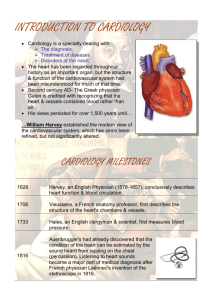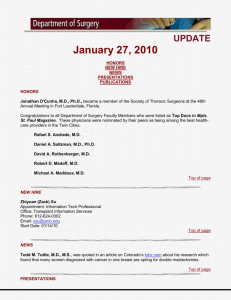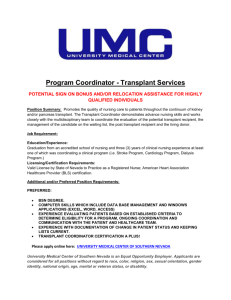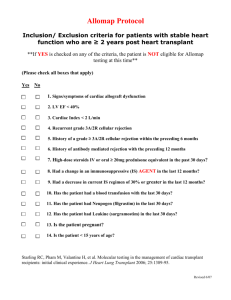Transplant Surgeon cj
advertisement
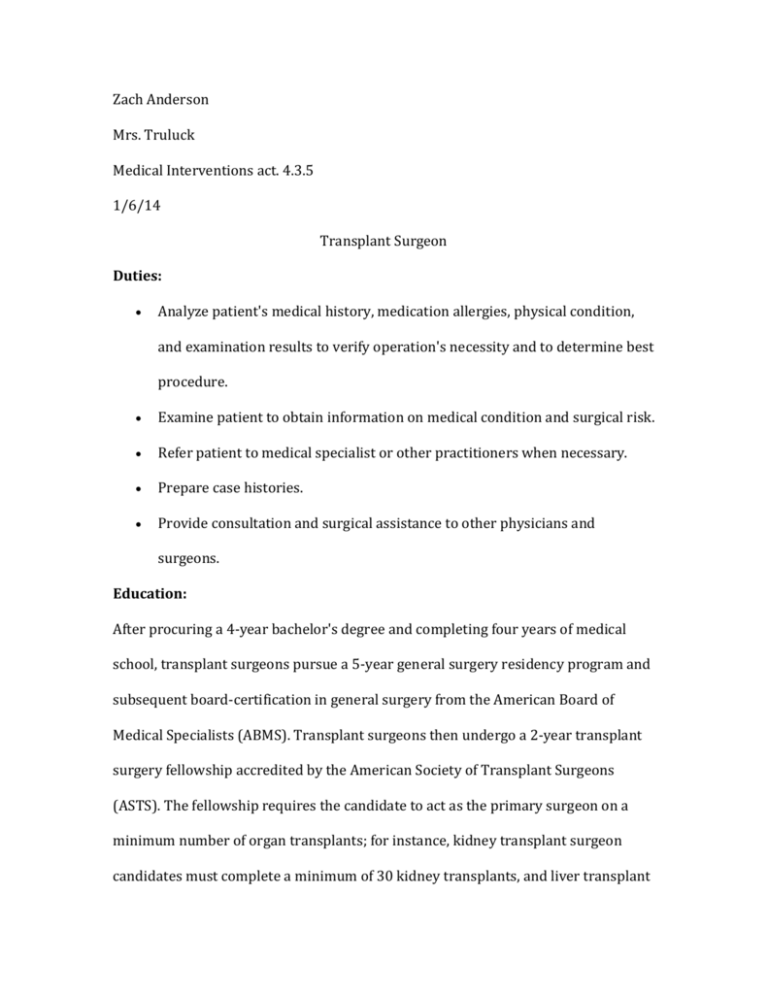
Zach Anderson Mrs. Truluck Medical Interventions act. 4.3.5 1/6/14 Transplant Surgeon Duties: Analyze patient's medical history, medication allergies, physical condition, and examination results to verify operation's necessity and to determine best procedure. Examine patient to obtain information on medical condition and surgical risk. Refer patient to medical specialist or other practitioners when necessary. Prepare case histories. Provide consultation and surgical assistance to other physicians and surgeons. Education: After procuring a 4-year bachelor's degree and completing four years of medical school, transplant surgeons pursue a 5-year general surgery residency program and subsequent board-certification in general surgery from the American Board of Medical Specialists (ABMS). Transplant surgeons then undergo a 2-year transplant surgery fellowship accredited by the American Society of Transplant Surgeons (ASTS). The fellowship requires the candidate to act as the primary surgeon on a minimum number of organ transplants; for instance, kidney transplant surgeon candidates must complete a minimum of 30 kidney transplants, and liver transplant surgeon candidates are required to perform at least 45 liver transplants (www.asts.org). Upon completion of fellowship training, transplant surgeons will be certified by the ASTS; while no re-certification requirements currently exist, surgeons are expected to remain up to date on developments in their field and must maintain their ABMS certification Salary: Surgeons, including transplant surgeons, had an average annual salary of $230,540 as of May 2012, according to the BLS. Sources: http://www.mymajors.com/careers-and-jobs/Transplant-Surgeon http://educationportal.com/articles/Transplant_Surgeons_Career_Information_for_Students_Interes ted_in_Performing_Transplant_Surgeries.html
